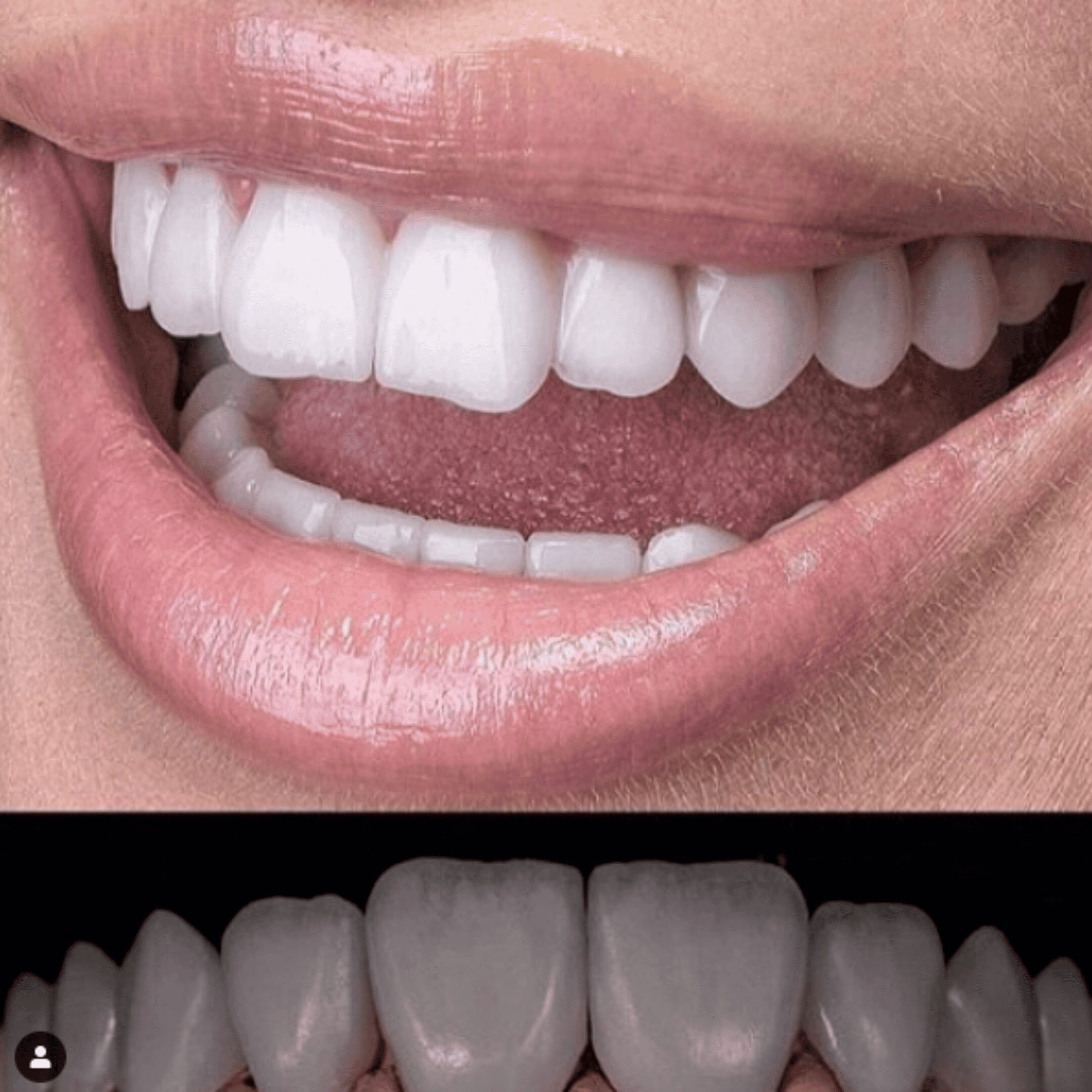Proces leczenia licówkami porcelanowymi to precyzyjna procedura, która łączy analizę estetyczną, planowanie protetyczne oraz wykonanie indywidualnych uzupełnień ceramicznych. Choć finalny efekt może wydawać się prosty i naturalny, wymaga on zaawansowanej diagnostyki, współpracy zespołu specjalistów i technologii cyfrowych.
W Unident Union każdy przypadek traktujemy indywidualnie — nie jako gotowy szablon estetyczny, ale jako projekt medyczno-artystyczny, dopasowany do anatomii, mimiki i oczekiwań pacjenta.
Etap 1: Diagnostyka i konsultacja estetyczna
Pierwszym krokiem jest dokładna analiza stanu uzębienia oraz rozmowa z pacjentem dotycząca jego oczekiwań względem estetyki uśmiechu. W tym etapie wykonuje się:
- dokumentację fotograficzną twarzy i uśmiechu,
- skany wewnątrzustne lub modele analogowe,
- analizę zgryzu i symetrii łuków zębowych,
- ocenę twardych i miękkich tkanek twarzy.
Na tej podstawie zespół lekarzy planuje zakres leczenia — liczbę licówek, ich rozkład, ewentualne zabiegi wspomagające (np. leczenie zachowawcze, higienizacja, korekta dziąseł).
Etap 2: Projektowanie uśmiechu – Digital Smile Design
Zastosowanie systemu Digital Smile Design (DSD) pozwala stworzyć spersonalizowany projekt nowego uśmiechu z uwzględnieniem:
- rysów twarzy,
- osi symetrii i proporcji,
- linii uśmiechu i ekspozycji zębów.
Powstaje cyfrowy model tzw. wax-up, który następnie przenoszony jest do jamy ustnej pacjenta w postaci mock-upu – przymiarki fizycznej (z materiału tymczasowego). Pacjent może sprawdzić wygląd, długość i kształt zębów jeszcze przed rozpoczęciem preparacji.
Etap 3: Mock-up – przymiarka nowego uśmiechu
Mock-up wykonywany jest bez ingerencji w zęby pacjenta. Pozwala na:
- ocenę estetyki i harmonii uśmiechu w kontekście twarzy,
- test funkcjonalności nowego ustawienia (mowa, mimika, zwarcie),
- dokonanie korekt długości, szerokości, kształtu zębów na etapie planowania,
- pełną kontrolę pacjenta nad efektem końcowym.
To jeden z kluczowych etapów leczenia, który znacząco minimalizuje ryzyko niezadowolenia z końcowego efektu.
Etap 4: Preparacja zębów (lub jej brak)
W zależności od typu licówek, sytuacji klinicznej oraz pozycji zębów w łuku, lekarz może zdecydować o:
- minimalnie inwazyjnej preparacji (np. 0,3–0,7 mm powierzchni szkliwa),
- braku szlifowania zębów (tzw. no-prep veneers) – w przypadkach z nadmiarem tkanek lub retruzją.
Preparacja wykonywana jest w powiększeniu (lupy, mikroskop), z kontrolą głębokości i zachowaniem struktury szkliwa.
Etap 5: Skan wewnątrzustny i tymczasowe licówki
Po przygotowaniu zębów wykonuje się cyfrowy skan wewnątrzustny — eliminując konieczność wycisków silikonowych. Następnie zakładane są licówki tymczasowe, których kształt i kolor odwzorowują wcześniej zaakceptowany mock-up. To kluczowy etap zapewniający komfort estetyczny i funkcjonalny pacjenta do czasu odbioru prac ostatecznych.
Etap 6: Wykonanie licówek porcelanowych
Gotowe licówki są wykonywane w laboratoriach protetycznych, z którymi współpracuje klinika. W Unident Union korzystamy z laboratoriów w:
- Brazylii – charakterystyczne podejście artystyczne i ekspresyjna estetyka,
- Dubaju – nowoczesna stylistyka i najwyższa precyzja,
- Szwajcarii – perfekcja wykonania i zaawansowana technologia CAD/CAM.
Prace protetyczne są indywidualnie dopasowywane do wcześniej zaakceptowanego projektu mock-up.
Etap 7: Cementowanie licówek
Po przymiarce i akceptacji przez pacjenta, licówki zostają zacementowane adhezyjnie. Stosuje się tu systemy łączące nowej generacji, zapewniające trwałość połączenia, szczelność i pełne dopasowanie do zęba. Finalnie kontrolowany jest zgryz oraz estetyka całego uśmiechu.
Podsumowanie
Proces leczenia z wykorzystaniem licówek porcelanowych to precyzyjnie zaplanowana procedura medyczna, która wymaga zaangażowania lekarza, technika i pacjenta. Każdy etap — od diagnostyki po cementowanie — ma wpływ na końcowy efekt estetyczny, funkcjonalny i długoterminową trwałość.
W Unident Union realizujemy pełny protokół leczenia w oparciu o międzynarodowe standardy oraz doświadczenie zespołu. Dzięki temu pacjent otrzymuje nie tylko estetyczny uśmiech, ale stabilne, przewidywalne rozwiązanie protetyczne na lata.
